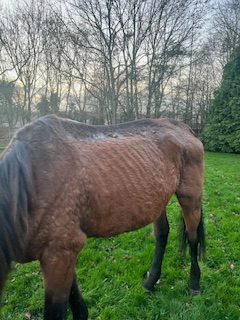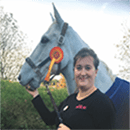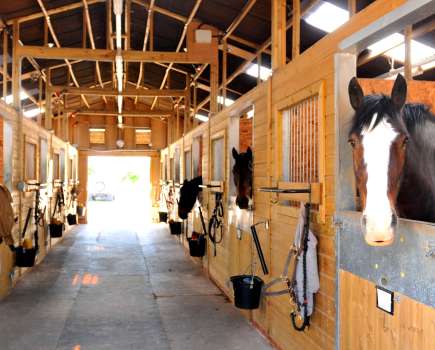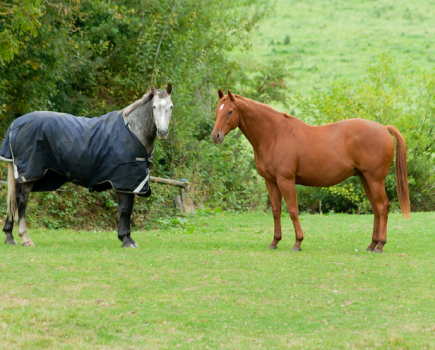A woman who returned a loan horse to its owners emaciated and suffering with rain scald has been banned from owning horses for 10 years.
Suzanne Obrey, 44, pleaded guilty to two offences under the Animal Welfare Act 2006, in a case brought by the RSPCA, and she is unable to appeal the ban for five years.
She was also handed a 12-month community order, where she is required to carry out 100 hours of unpaid work, and to pay costs of £400, plus a victim surcharge of £114.
Worcester-based Suzanne had Chocolate Box, a nine-year-old Thoroughbred, on loan until December 2023, when she returned him in poor condition, having failed to meet his health care needs. After calling a vet to examine him, the owners contacted the RSPCA to investigate.
“Chocolate Box had poor muscling over his body, with a condition score equating to ‘very thin, emaciated, with little fat cover’,” said the vet in a witness statement.

“The skin over his back and hindquarters was ulcerated and matted with hair. Hardened, painful scabs were present on his hind limbs, and there was scurf and dermatitis present along the neck, abdomen and his legs were filled with fluid and uncomfortable, consistent with secondary cellulitis.”
In their statement, the vet added: “In my opinion, Chocolate Box was caused unnecessary suffering, caused by severe untreated skin lesions and malnutrition — the horse’s needs had not been met.”
Remorse
The court heard that vets had previously examined the bay horse in September 2022 for routine vaccinations while at his loan home, and there were no clinical concerns for him at that time.
It also heard that Suzanne was “very sorry” she did not take the horse to vets sooner and accepted she should have done so, and that she “loves animals and has always had them”.
It was added that she had “done her best but it was due to incompetent care, and not deliberate”.
Chocolate Box has since recovered in the care of his owners.
“It is very sad that Chocolate Box was caused to suffer as he did. Sadly, we do see ex-racehorses fall into the hands of people who lack the knowledge, finances or infrastructure to meet the needs of this type of horse,” said RSPCA Inspector Suzi Smith.
“Horses may lose weight slowly, and when you see a horse everyday some people find it hard to see a decline in weight. So observation and daily checks are vital, especially in winter when rugs or thick winter coats might hide a decline in body condition.”

‘Costs are a big factor’
The RSCPA Inspector added that “education is only part of preventing problems like those experienced by Chocolate Box”.
She added that costs are a big factor too.
“If someone is finding it challenging to cover vet costs, we recommend they take proactive steps to ensure an equine will never go without vital vet treatment,” she said.
“This could be by having an insurance policy, paying into a savings account specifically for veterinary emergencies, or having an emergency credit card. Some vets offer payment plans.”
Suzi Smith also urged horse owners to do weekly body condition scoring check.
“Weight loss can be an indicator of many things, the most common causes are nutrition, dental or parasitic, or it could be pathological or another reason,” she said. “Therefore, owners should ensure the diet is suitable for the horse they are caring for, and that horses have their teeth checked by a vet or equine dental technician at least once every year.”









